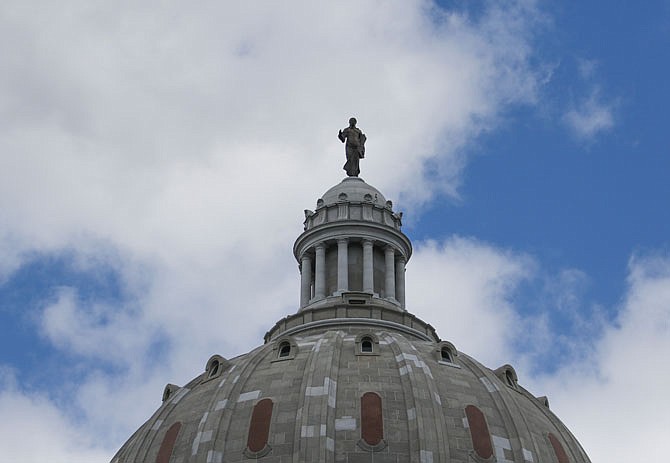Hundreds of activists lobbied Missouri lawmakers to support their communities Tuesday during Missouri Disability Rights Legislative Day.
Because of concerns about the spread of COVID-19, organizers held the event online, with masters of ceremonies Monica Williams and Chris Worth cheering on participants.
The online event was a "super-accessible place" for participants, Worth said.
"Even though I miss the Capitol a lot - because I love the paintings and I love the people - this is an exciting experience," Worth said. "We're in this together. We're in this together. Just say it and you will be with us."
"In This Together" was the theme for the day. The event, in its 20th year, featured more than a dozen speakers, including Gov. Mike Parson, State Treasurer Scott Fitzpatrick and six lawmakers.
It focused on three topics:
Support our staff - because for many people with disabilities, reliable support staff are critical to a happy, healthy and productive life.
Support our inclusion - because students with disabilities shouldn't be subjected to restraint and seclusion.
Support our work - because people with disabilities can and want to work.
"We want to send a message out to legislators," Williams said. "By supporting our staff, they are supporting our lives."
Direct Support Professionals have been in high demand in Missouri for years. Part of the problem is they aren't well-compensated for their work. DSPs work directly with people with physical or intellectual disabilities in efforts to help them become integrated into a community.
It's clear DSPs are hard workers, doing everything from nursing and personal care services to teaching life skills, state Rep. Sarah Unsicker, D-Shrewsbury said.
"DSPs need a pay raise just to ensure the people doing these services can afford to work," she said. "DSPs work hard, but their pay is bound to what the state pays."
In most cases, she said, they could make more money at an easier job in fast food or retail.
"We need to make sure DSPs receive fair pay for their sake and for the sake of the people they work with," she said.
Activist Tracy Bono spoke concerning House Bill 387, which would modify laws regarding seclusion and restraint policies in schools. The bill, sponsored by state Rep. Dottie Bailey, R-Eureka, would require schools to include in their policies a prohibition on use of restraint or seclusion, other than times where there is imminent danger of physical harm to self or others. The policy should include when to remove a child from restraint, seclusion or isolation. It would set reporting requirements and other protections.
Bono said her youngest son, who has autism and has limited verbal skills, was repeatedly locked in a closet-size space in his school. But she was never informed.
Bono finally figured it out when she prompted the boy's teacher to to confess it to her, she said.
Now that her son is older and more verbal, he has told Bono more about what happened. He was dragged by his hair to the room, Bono said.
He no longer attends that school, she said.
She also said data show Black children and children with disabilities are more likely to be restrained or isolated.
"I think about all the children every day who are being subjected to this. In Missouri, there is no accountability," she said. "No oversight."
Bono encouraged listeners to let their legislators know the bill needs to pass.
Missouri has also been talking about consumer-directed supports, state Rep. Bridget Walsh Moore, D-St. Louis, said.
Moore is sponsoring House Bill 115, which would create the Missouri Employment First Act. The bill would require all state agencies that provide employment-related services or provide services or support to people with disabilities to coordinate with other agencies, share data where feasible, promote competitive integrated employment and implement an employment-first policy when providing services to people of working age with disabilities.
The bill goes further than the Americans with Disabilities Act, Moore said.
"I know there are a lot of people here who would like to go into a workforce environment," she said.
She assured people who enjoy working in sheltered workshops they would not be affected by the bill.
The challenge, she said, is that if disabled workers make more money, they approach "the fiscal cliff," at which they make enough money that the state stops providing other supports.
Parson told viewers he would like to change the way people view the community, adding he doesn't like the word "disability." He prefers to talk about people's abilities. He said the efforts participants in the advocacy day - and every day - were impressive.
"How does Missouri, as a state, provide opportunities in which people of all abilities may excel?" Parson asked.
As parts of a governor's proclamation, Parson told the activists full inclusion is a matter of social justice and creating equitable environments creates a shared experience for all.
And, he said, all Missourians are held to a higher responsibility to do so.

